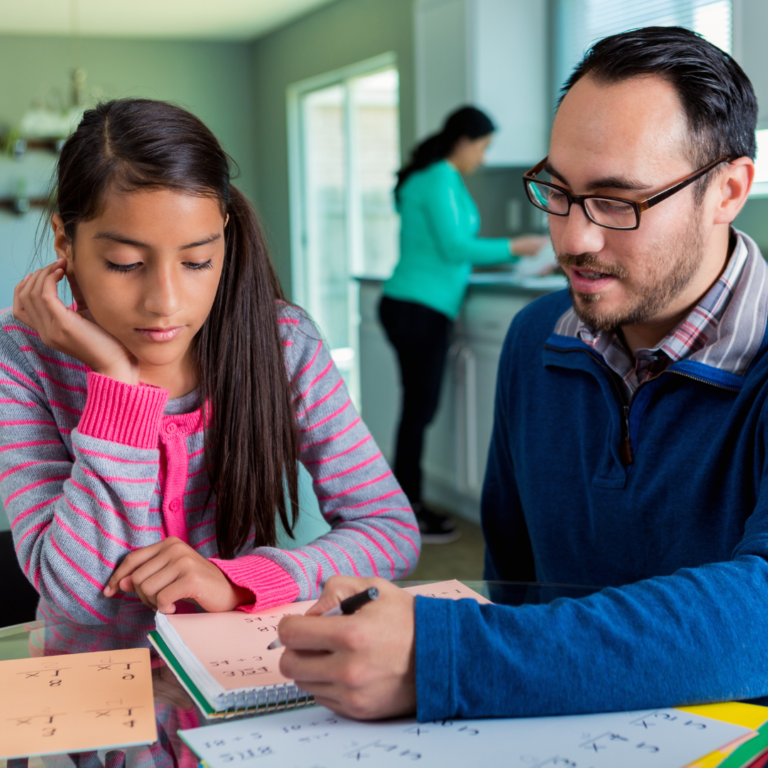5 Less than Helpful Myths about Home Learning

If you have been beating yourself up about homeschooling your children whilst trying to juggle a full-time job, you need to stop right now. We are in an emergency situation and it quite simply isn’t possible to do both of those things together. Anybody would be exhausted. This is no reflection on you.
How do I know that this isn’t possible? Because I already tried it (sort of) back in 2016 when I chose to home-educate my children. I hope that by sharing some of what I learnt back then, that it will enable some of you super-star parents to give yourselves a break and know that your child will be just fine, however you are doing lockdown.
When we first made the decision to home educate our kids, I had lots of grand plans – I created timetables, printed off resources and divided everything into “school subjects.”
Essentially, it was just school, but at home.
Within about 7 days, the children and I were exhausted, bored and lacking in motivation (pretty much like during this lockdown experience really).
After a few weeks, however, we learnt an important lesson: that there is no single way to educate your child.
We met many, many home-educated children who did not follow the curriculum, did not sit all day doing workbooks and did not spend 6 hours a day working. And guess what? They still turned out to be well-rounded, intelligent, happy individuals.
There are several myths around teaching your own children from home, which are less than empowering to say the least.
Myth 1: You must be a qualified teacher.
This is absolutely not the case. Up until the age of 4, your children learnt absolutely everything they need to know from you – you have taught them to talk, eat, walk, tie their shoelaces, read books…the list is endless. But sadly it seems that once we deliver our children to the school gates on their first day at school, we come to believe that we are no longer capable of imparting any kind of useful information to our children and that somehow we might “mess it up.”
You might not know thirty Romeo and Juliet quotes off by heart but what do you know that could be of real value to them in the future?
Myth 2: You need to sit next to your child the whole time
Again, this is not the case. When your child is learning from home, you become a facilitator rather than a teacher. Some days, you might only need to make sure that their laptop is switched on and they know what they are doing.
In fact, there are huge advantages to NOT sitting there with them all day. It will teach them self-directed learning and independence. If they learn nothing else in lockdown, this alone is a precious gift.
Myth 3: You need to already know everything about the subject
This is where Google is your friend. I know how to teach English but I really don’t know much about some of the other subjects my kids are studying . Usually, I find that a quick search on Google gives me what I’m looking for when my kids are stuck and I just send them links. I have also learnt loads myself from doing this.
Myth 4: You must stick to the curriculum
It’s perfectly fine to experiment, have fun and do things differently for a while – in fact, I wholeheartedly recommend it. Anything and everything you teach your children is of value.
Similarly, there has been a lot of research into unschooling – allowing your child to learn exactly what they want to learn, when and how they want to learn it – with some fascinating results. Again, you don’t need to provide the learning, just the permission to follow their interests.
Myth 5: You must work for 6 hours per day
Children might spend 6 hours a day in school, but they absolutely do not spend 6 hours a day working solidly. Once you take off assembly, registration, break times, lunchtimes, settling the class at the beginning of a lesson, packing up at the end of a lesson…you get the picture.
To expect a child to concentrate for 6 hours per day in one room is at best unrealistic and at worst, unhealthy.
When we finally found Home Ed balance in our family, we were doing about 2 hours per day of concentrated book work – the rest was trips, outdoor activities and self-directed learning.
The school might want your teen to stick rigidly to a timetable for 6 hours a day. This is because school leaders have been put in an impossible situation. They have had to come up with a “one size fits all” approach with zero preparation time. They are therefore likely to provide too much work, rather than not enough, to avoid complaints and recriminations. Whilst lockdown is a tough situation for parents, it is also a tough situation for teachers and headteachers.
But we all have choices.
Remember this: you are, and always have been, your child’s primary educator. If you have a feeling that your child is stressed and needs time out, you are probably correct. As a parent, it is your right to do what you think is best for you and your family.
To read more tips about helping your teen with remote learning, click here https://www.charlottenooncoaching.co.uk/blog/how-to-help-your-teen-with-learning-from-home/

